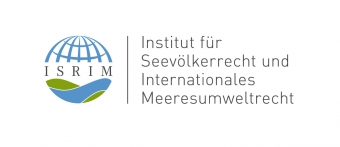Veranstaltungsarchiv
Jean Monnet Summer School on European Union and the Law of the Sea (EULoS)
Die englischsprachige Sommerschule ist eine Kooperation zwischen der Universität Genua (Italien), der Universität Bremen und der Hochschule Bremerhaven. Sie wird von der Universität Genua und dem Institut für Seevölkerrecht und Internationales Meeresumweltrecht (ISRIM), Bremen organisiert.

JEAN MONNET MODULE:
EUROPEAN UNION AND THE LAW OF THE SEA (EULoS)
The interaction between the Law of the Sea and EU law is an area of increasing importance, which has nonetheless so far attracted too little attention.
The role of the EU with regard to the rights and duties implied in the use of world’s oceans is worth an ad hoc scrutiny not only in the light of the enhanced presence of the EU in the international arena but also because of a strategic interest that the EU has developed in recent years. Issues such as marine spatial planning, piracy, the preservation of the marine environment and the navigational use of the Arctic – just to give a few examples – have been for long at the top of the agenda of the EU and, occasionally, a reason of divergence between the EU and its Member States.
Both the EU and its Member States are parties to the 1982 United Nations Convention on the Law of the Sea on the basis of the principle of attributed powers, according to which each contracting party assumes the rights and obligations deriving therefrom to the extent allowed by their respective competences. The recent practice has, however, shown that uncertainties if not outright clashes may indeed arise. Several contentious cases have been brought to attention of the Court of Justice of the EU either by way of infringement proceedings or because of alleged inconsistencies between EU law and international maritime treaties to which the Member States themselves are contracting parties.
Jean Monnet Summer School on European Union and the Law of the Sea (EULoS)

Bibliotheksstr. 1
28359 Bremen
8.85241 17

